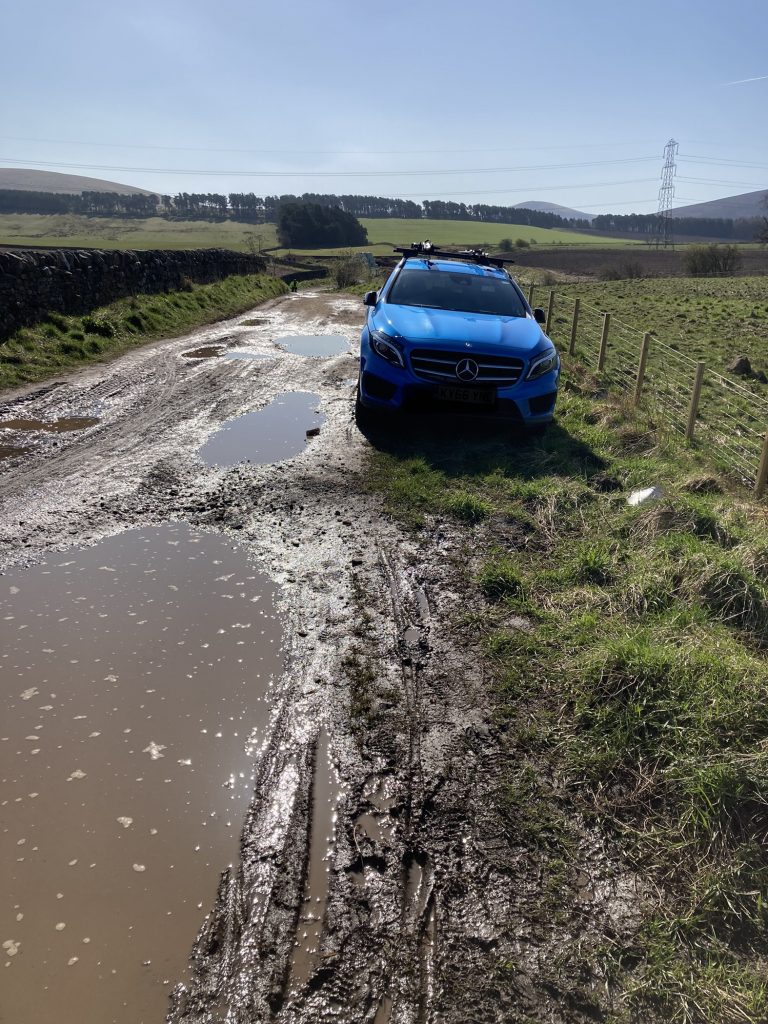D&R Land Agent Will Frazer gives an update on how the pandemic is affecting access to the countryside.
The Corona Virus pandemic has had many unanticipated side effects. One of them is that the countryside has seen unprecedented pressure from increased access. A cocktail of lockdowns, the furlough scheme and the free time this affords has led people to rediscover the countryside.
Overall, this is good news, it shows that people are interested in the great outdoors and being in our wonderful rural landscapes. However, with more people comes more pressure on the rural environment and the fragile balance between stakeholders.
We find that our clients are very happy to welcome responsible access by people who wish to exercise on their land. The key here is responsibility. Unfortunately, we have found that in many cases people, often unmaliciously, have misunderstood their rights. This, combined with the sheer numbers have caused problems to arise.
The number of cars parked dangerously on rural roads has increased, we have also had reports of people’s driveways being blocked and parking in fields. We have found that existing paths are rapidly deteriorating and in bad weather this is causing people to stray off the path causing further damage. Some of our clients are experiencing unprecedented crop damage due to people walking around the edges of fields and creating unofficial paths that gradually widen and destroy the crop. There are many cases of people walking across the middle of cropped fields and justifying it by walking in the tram lines, which again start to widen. With the ever-increasing number of dogs there have been growing reports of livestock incidents such as sheep worrying. Free roaming dogs also present a risk to ground nesting bird.
There are several grey areas in the access code that could be tightened up. An example of this is a clause allowing people to walk field margins in single file over a crop that has established itself. While at very low levels this may cause little or no damage, but with the high number of people, it becomes unmanageable.
The unprecedented access levels have led to a minority who aggressively assert their ‘right to roam’ and assume that this means they can go anywhere they like with impunity. Unfortunately, the number of confrontations is on the rise and it is important that there is good public understanding of the responsibilities that come with access.
It is important to stay safe and avoid any altercations. Keep a diary of incidents, take photos and call non-emergency lines to report parking and access issues. Report to the police particular ‘problem spots’ to increase the patrols in that area and in an emergency call 999.
On a more positive note, increasing access to rural areas presents opportunities. Clearly defined paths and good signage can go a long way in keeping people where they should be. We have found that constructive communication with the public is always helpful. For example, signage that explains why you should keep your dog on the lead and stay to the path is better than just putting up a do not enter sign, which people tend to ignore. Focusing on environmental, wildlife and livestock matters such as lambing, ground nesting birds or soil erosion are good factors that most people will pay attention to. Making connections with local groups and people such as the Community Council, Outdoor Access Forum, Councillors and Access Officers can be helpful in communicating access issues to the wider community. The Outdoor Access Forum is particularly helpful with signage.
There are ways to monetise the situation too. Building carparks, charging a parking fee and Installing charging points for electric vehicles can generate income. Renting space to simple income producers such as coffee vendors or honesty boxes for farm produce.
Increased access can cause damage to livelihoods and wildlife, but as with most things it presents an opportunity. At Davidson & Robertson we are well versed in spotting the value in things and are well placed to advise how an issue like this can be turned into an opportunity.



